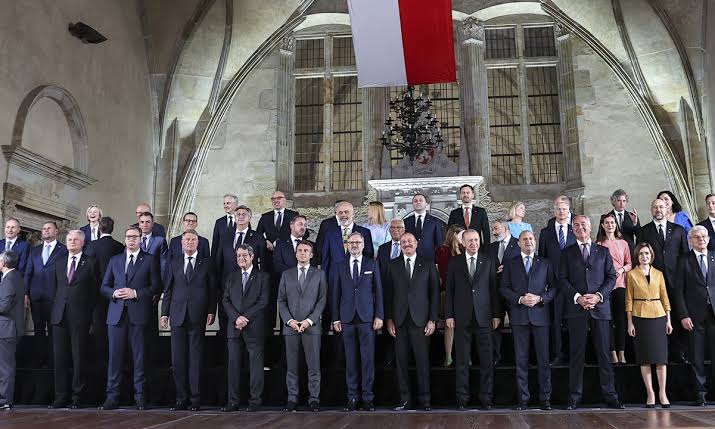Sanctions against Russia shows Europe’s loss of strategic autonomy, irrationality

Europe’s energy issues are growing even bigger. The recent sabotage of Nord Stream pipelines has exposed how fragile European energy infrastructure security is. But even as the energy crisis deepens, Europe is still following Washington’s hard line against Russia, disregarding the impact such a policy may have on itself.
On Wednesday, in response to the results of referenda on “joining Russia” in four Russian-occupied regions in Ukraine, European Commission President Ursula von der Leyen claimed that the European Union (EU) was proposing the eighth round of sanctions against Russia, including a price cap on Russian oil. This continues to jeopardize the hope for Europe to resolve its current energy problems.
It is an absolute tragedy for Europe that its dependence on Washington has grown to such an extent that it has to dance to US’ tune regarding its Russian policy. EU countries have escalated their sanctions against Russia step by step. In the end, the EU and Russia will both suffer, but the needs of the US will be satisfied.
Europe’s strategic autonomy and control over its economy have been substantially crippled by the Russia-Ukraine conflict and US’ manipulation. Europe has fallen into confusion after losing its strategic autonomy, which is leading to the emergence of certain irrationality. The imprudent sanction decisions made by EU officials harm Europe itself, because some people and businesses have to leave the continent in the face of worsening crises.
When the military conflict between Moscow and Kiev broke out, many Europeans believed that it’s them plus Americans against the Russians. But reality has proven them wrong: Europe is also a piece of meat on Washington’s chopping block.
Europe’s sufferings are worth thinking about by countries all over the world, especially some of the US allies and partners in the Asia-Pacific region: When they blindly follow the US to consolidate its dominance in the world, who on earth will actually benefit?
These countries also need to see that while the European economy falls deeper into recession, Washington continues leeching onto it to rake it in from the disasters Europe is suffering from.
Several Western media recently have observed such a phenomenon. Due to factors, such as skyrocketing gas prices and the ongoing Russia-Ukraine conflict, many European companies are fleeing Europe and moving their businesses to the US. This includes companies producing steel and fertilizers that have a heavy reliance on energy.
A Wall Street Journal report quoted some economists as a warning that there could be a new era of de-industrialization in Europe. European journal Modern Diplomacy also pointed out that the European public will now be left farther and farther behind as the continent’s wealth flees, mainly to the US.
Currently, Europe’s biggest problem is the loss of certainty. The whole continent is at high risk. With a substantial spillover and diffusion effect, the Russian-Ukrainian military conflict will likely escalate. It not only brings geopolitical turmoil, but, more importantly, weakens or even hollows out the potential for the European economy to prosper.
The US has been a huge beneficiary of the current crisis in Europe from almost all aspects. Economically, many European manufacturers are shifting to the US, and Europe’s energy demands for Russia have been successfully transferred to the US. The more chaotic the situation in Russia and Ukraine is, the more American arms dealers will make a fortune. At the same time, the US has intervened in the Russia-Ukraine conflict through NATO, which has strengthened Europe’s dependence on the US for security and weakened Europe’s strategic autonomy.
In the face of the advantages and strengths of the US, Europe has fallen into a passive situation. Under Washington’s instigation, the EU has made dealing with the so-called Russia threat and the possible spill over effects of the Russia-Ukraine conflict its primary goal, even if it means it has to give up a considerable number of economic interests. Besides, Europe doesn’t have many resources to devote to its own defense capability building now, so it has to rely more on NATO.
The current situation in Europe has made it more challenging to achieve the goal of strategic autonomy. This is catastrophic for Europe and the whole world, as it could lead to a severe imbalance in the entire geopolitical situation and prevent the situation from returning to normalcy.




